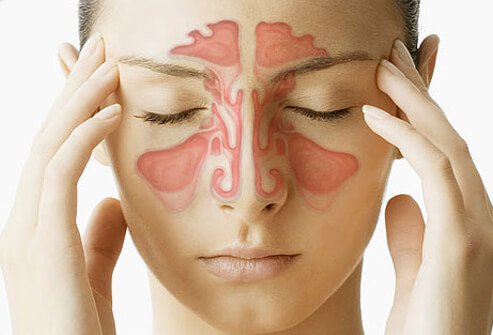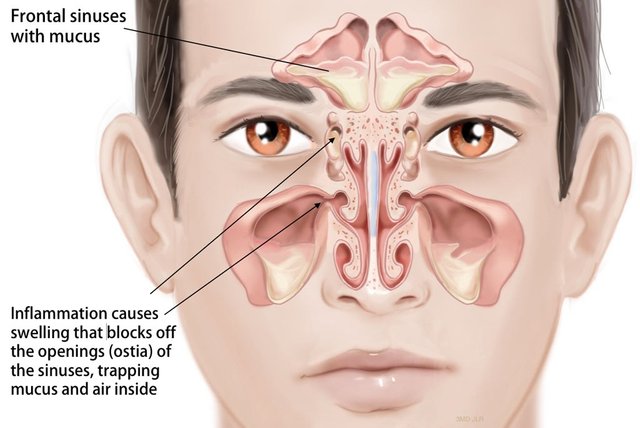Sinusitis is an inflammation or swelling of the tissue lining
the sinuses. Healthy sinuses are filled with air. But when they become
blocked and filled with fluid, germs can grow and cause an infection. Sinusitis signs and symptoms include: Sinus disease is not just one entity but many. Overall infectious or
inflammatory sinus disease can be broken up into acute (quick onset) or
chronic (over a long period of time). Acute sinusitis is the most common
form of sinusitis and is typically treated with a combination of
antibiotics and agents to decrease inflammation in the nose. Risk factors You're at increased risk of getting chronic or recurrent sinusitis if you have: A nasal passage abnormality, such as a deviated nasal septum or nasal polyps Your mucus is yellow or greenish: treatment: Medicines: Nasal decongestant sprays
sinus headache,
facial tenderness,
pressure or pain in the sinuses, in the ears and teeth,
fever,
cloudy discolored nasal or postnasal drainage,
feeling of nasal stuffiness,
sore throat,
cough, and
occasionally facial swelling.
Asthma, which is highly connected to chronic sinusitis
Aspirin sensitivity that causes respiratory symptoms
An immune system disorder, such as HIV/AIDS or cystic fibrosis
Hay fever or another allergic condition that affects your sinuses
A colored discharge—as opposed to clear mucus—from the nose or down the
back of your throat is another sign you may have a sinus infection,
although it’s not always an indication that you need treatment.
Antibiotics . If your doctor thinks a bacterial infection is to blame,
he may prescribe antibiotics. For acute sinusitis, you typically take
them for 10-14 days. For chronic sinusitis, it might be longer.
Topical nasal decongestants can be helpful if used for no more than
three to four days. These medications shrink swollen nasal passages,
facilitating the flow of drainage from the sinuses. Overuse of topical
nasal decongestants can result in a dependent condition in which the
nasal passages swell shut, called rebound phenomenon.
0